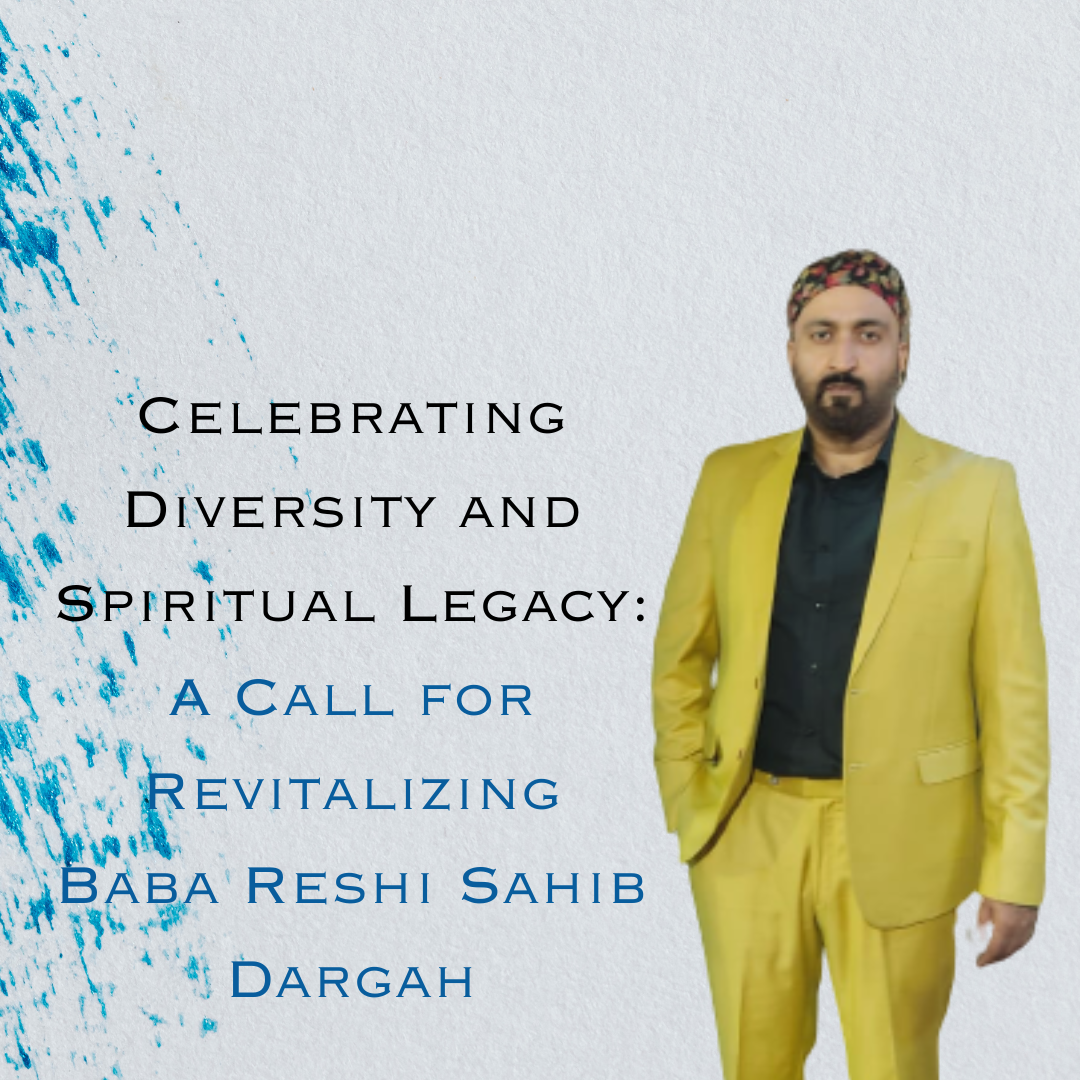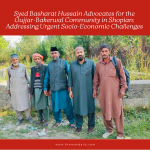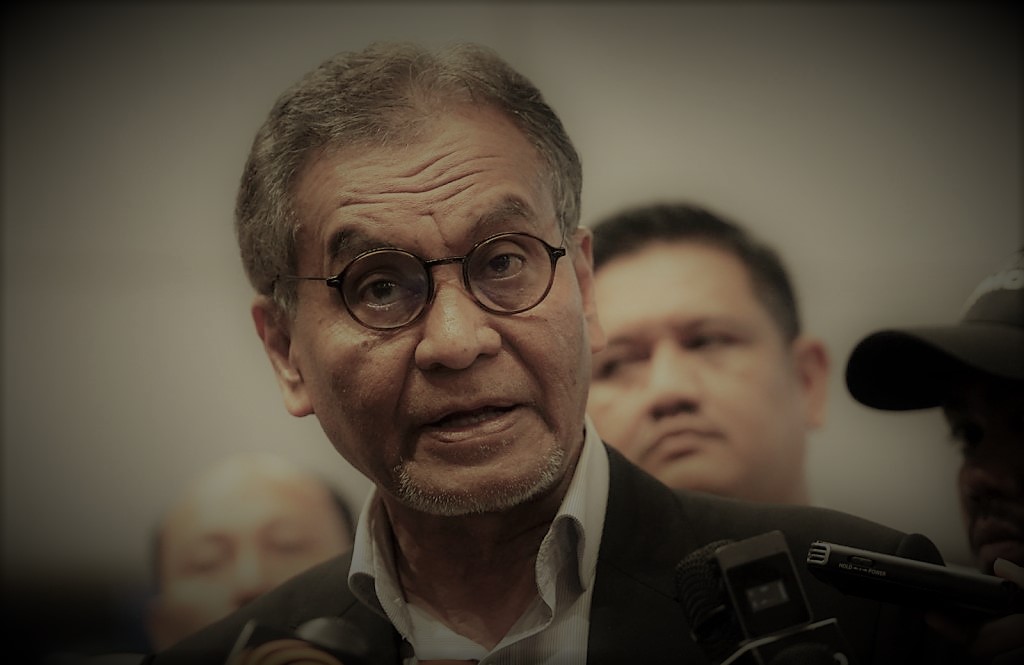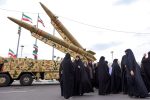India, with its rich mosaic of cultures, religions, customs, and traditions, stands as a testament to the beauty of diversity. This multicultural mosaic is celebrated throughout the country, where religious tourism plays a significant role in binding these diverse threads together. For Kashmiri Muslims, the Dargahs and Sufi traditions are more than just places of worship; they are legacies and spiritual symbols of our identity and learning. Our recent visit to Baba Reshi Sahib Dargah was conducted with this spirit in mind, aiming to explore new ways to serve the throngs of devotees who flock to this sacred site.
Nestled in the picturesque hills of Kashmir, the Baba Reshi Sahib Dargah is a beacon of spiritual solace and cultural heritage. This revered shrine attracts thousands of devotees, seeking blessings and peace. However, our recent pilgrimage unveiled several pressing issues that demand immediate attention and action.
Observations: The Need for Infrastructure and Hygiene Improvements
The first glaring shortcoming was the lack of adequate infrastructure. Basic amenities such as washrooms and wudu khanas were found to be in a deplorable state. The unhygienic conditions not only pose a health risk to the devotees but also tarnish the sanctity of the holy site. The rest houses for devotees are old and crumbling, failing to provide the necessary comfort and respite for weary pilgrims.
Moreover, the langar utensils, essential for serving food to the devotees, were found to be old and used in unhygienic conditions. The potential for toxicity in the food preparation process is a serious concern that cannot be ignored. Such conditions reflect poorly on the management and upkeep of the Dargah, which is under the purview of the Wakf Board.
Adding to these concerns is the inefficient and defunct traditional waste management system. The Dargah’s surroundings are marred by improper waste disposal, leading to an unsanitary environment that detracts from the spiritual experience and poses health risks.
The Role of the Wakf Board: A Call for Accountability and Innovation
The Wakf Board, entrusted with the management and maintenance of religious properties, seems to be failing in its duties. As devotees and stakeholders in society, we call upon the Wakf Board to change its attitude and adopt a more proactive approach towards managing the Dargah. Here are some critical steps that need to be taken:
1. Timely and Proper Auditing of Wakf Donations
The Wakf Board must ensure transparency and accountability in the management of donations. Regular and thorough audits should be conducted to track the utilization of funds. This will not only build trust among the devotees but also ensure that the resources are being used effectively for the maintenance and development of the Dargah. Furthermore, funds and donations should not be wasted on frivolous activities that celebrate the coming of the Wakf Chairperson to Dargahs. These resources should be dedicated to improving the infrastructure and services for the devotees.
2. Establishment of Educational and Skill-Based Institutions
The Wakf Board should focus on setting up schools, colleges, and skill-based institutions. These educational initiatives will empower the local community and provide them with opportunities for growth and development. By fostering education, the Board can contribute to the socio-economic upliftment of the region.
3. Promotion of Employment Generating Policies and Programs
Employment generation is crucial for the well-being of the community. The Wakf Board should introduce policies and programs that create job opportunities. Initiatives such as sheep farming for rearing sacrificial animals can provide a sustainable source of income for many families. Employing a large number of well-trained sweepers and janitors can improve the hygiene and cleanliness of the Dargah.
4. Implementation of Digital Ticketing Systems
To ease the rush of devotees and manage large gatherings efficiently, the introduction of digital ticketing systems is essential. This will streamline the entry process, reduce waiting times, and enhance the overall experience for the pilgrims.
5. Digital Waste Management Systems
Proper waste management is crucial to maintaining the sanctity of the Dargah. The installation of digital waste management systems can ensure that the premises remain clean and hygienic. This will not only benefit the devotees but also protect the environment.
6. Development of Digital Learning Platforms
In this digital age, it is imperative to leverage technology for educational purposes. The Wakf Board should develop digital platforms for learning the Quran, Hadith, and Seerah. These platforms can provide easy access to religious knowledge and foster a deeper understanding of our spiritual heritage.
A Vision for a Brighter Future
The Baba Reshi Sahib Dargah holds immense spiritual and cultural significance for Kashmiri Muslims. It is our collective responsibility to ensure that this sacred site is preserved and maintained in the best possible manner. By addressing the current shortcomings and implementing the suggested measures, the Wakf Board can transform the Dargah into a model of excellence and devotion.
Our recent visit was not just a pilgrimage but a call to action. It is time for the Wakf Board to rise to the occasion and fulfill its duties with diligence and dedication. Let us work together to create a better, cleaner, and more welcoming Baba Reshi Sahib Dargah, where every devotee can experience the true essence of spirituality and peace.








